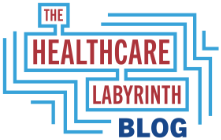
Channeling Nostradamus: The Healthcare Labyrinth’s 2024 Predictions
In my last blog, I gave you my healthcare year-in-review for 2023. After that, as I always do each year, I play Nostradamus to prognosticate about what will happen in the next twelve months in the world of healthcare. Despite my Irish last name, I do have French blood (well, 50% French Canadien, so I count it). But I don’t claim to be an oracle or seer like our 16th century physician, apothecary, and astrologer friend. I do take a page from Nostradamus, though, in that my healthcare predictions for 2023 (not really prophecies) will be sometimes deliberately vague (they include a lot of mays, coulds, shoulds, and possibles) so as to amass a reasonable record for those tracking and putting together my forecasting report card for the history books. Here is hoping my crystal ball is clear and not cloudy, but don’t hold me to any of this; I am simply











